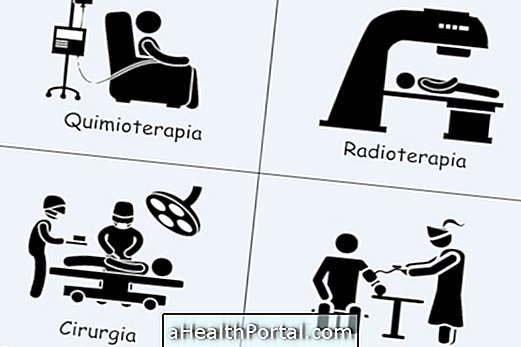Anuria is a condition characterized by the absence of production and elimination of urine, which is usually related to some obstruction in the urinary tract or to be a consequence of acute renal failure, for example.
It is important that the cause of anuria is identified because it is possible for the most appropriate treatment to be indicated by the urologist or nephrologist, which may involve the correction of the obstruction, stent placement or hemodialysis.

Main causes
The cause most often associated with anuria is acute renal failure, in which the kidney is unable to filter the blood properly, with the accumulation of substances harmful to the body and leading to the appearance of some signs and symptoms such as pain in the lower back , easy tiredness, shortness of breath and high blood pressure, for example. Learn how to recognize the symptoms of acute kidney failure.
Other possible causes of anuria are:
- Obstruction of the urinary tract due to the presence of stones, which prevents the urine from being eliminated;
- Uncontrolled diabetes, because excess glucose can cause progressive damage to the kidneys, directly interfering with its function and resulting in acute renal failure, which is the most frequent cause of anuria;
- Changes in the prostate, in the case of men, as it can cause changes in the urinary system due to the presence of tumors, for example;
- Tumor in the kidneys, because in addition to altering the functioning of the kidneys, it can also cause obstruction of the urinary tract;
- Hypertension, as kidney function may change in the long term due to damage that can happen in the vessels around the kidneys.
The diagnosis of anuria is made by the nephrologist or urologist according to signs and symptoms presented by the person that may be indicative of changes in the kidneys, such as fluid retention, difficulty in urinating, frequent tiredness and the presence of blood in the urine when it is possible elimination.
In addition, to confirm the cause of anuria, the doctor may also indicate the performance of blood tests, urine tests, computed tomography, magnetic resonance imaging or renal scintigraphy, in which the shape and functioning of the kidneys is evaluated, being important in diagnosis of renal failure or identification of obstructions, for example. Understand what kidney scintigraphy is and how it is done.
How treatment should be
The treatment of anuria is indicated by the doctor according to the cause, the signs and symptoms presented by the person and the person's state of health. Thus, if anuria is caused by an obstruction in the urinary tract that prevents the elimination of urine, it may be recommended to perform a surgical procedure to correct the obstruction, favoring the elimination of urine, and the placement of a stent.
In the case of kidney failure, hemodialysis is usually recommended, because the blood needs to be filtered to prevent the accumulation of toxic substances to the body, which could worsen kidney failure. See how hemodialysis is done.
In the last case, when the insufficiency is already more advanced and the hemodialysis is not being totally sufficient, the doctor can indicate the kidney transplant.
In addition, it is important that treatment for the underlying disease, such as diabetes or cardiovascular changes, for example, be continued according to the doctor's recommendation, as this way it is possible to avoid complications.
Was this information helpful?
Yes No
Your opinion is important! Write here how we can improve our text:
Any questions? Click here to be answered.
Email in which you want to receive a reply:
Check the confirmation email we sent you.
Your name:
Reason for visit:
--- Choose your reason --- DiseaseLive betterHelp another personGain knowledge
Are you a health professional?
NoMedicalPharmaceuticalsNurseNutritionistBiomedicalPhysiotherapistBeauticianOther
Bibliography
- CHOI, Hye Min; KIM, Sun Chul; KIM, Myung-Gyu et al. Etiology and outcomes of anuria in acute kidney injury: a single center study. Kidney Res Clin Pract. Vol 34. 13-19, 2015
- BRAZILIAN SOCIETY OF NEPHROLOGY. Guidelines of the Brazilian Society of Nephrology - Acute Renal Insufficiency. 2007. Available at:. Accessed on 20 Jul 2020
























